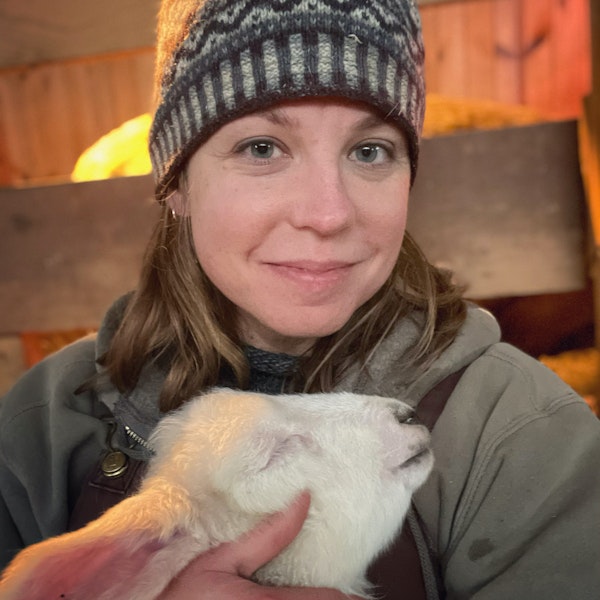
Kate Larson, editor of Farm & Fiber Knits, was the editor of Spin Off from from 2018–2025. She's excited to continue serving Spin Off as content editor. Kate teaches handspinning around the country and spends as many hours as life allows in the barn with her beloved flock of Border Leicesters.
In the dozen or so fiber-laden vendor halls I visit each year, I love seeing spinners encounter yak/silk combed tops for the first time.
I had the great good fortune to visit the Shetland Isles several years ago. When I returned, I was anxious to start knitting my first Shetland hap. These knitted shawls were commonly worn by generations of women who lived and worked on Shetland.
As I worked on my Moonflower Dolman knitted from my own handspun yarn this summer, I was determined to have it ready to wear to the Madison Knitters’ Guild in. It was a close call, but don’t worry-—this is a happy sweater ending!
Spinzilla challenges us to spin as many yards as possible in one week, but beyond that, what fiber we use or what gauge we spin is up to us. Have you made a plan or created a queue of tempting fiber options to help you treadle your way to the finish line?
I love spinning cotton during the summer. I also enjoy small, hot-weather projects that let me get a quick crochet fix or use up small bits of yarn.
After a decade of spinning-focused travels, teaching, and writing, I’m off on a new adventure as editor of Spin Off magazine.
While I love all the seasons of a shepherd’s calendar, summer grazing is one of my favorites.
I love spinning for a project, constructing the handspun yarn I want, and seeing a thing I made grow right before my very eyes.
California cotton breeder Sally Fox is most widely known for organic cottons that grow in a luscious range of tans, greens, and warm browns. Sally also keeps a growing flock of natural color Merinos roaming her Capay Valley fields—such fleecy goodness!
I've been stash diving as summer fades to fall. Most of what settles to the bottom of my stash are fibers that I like but have a problem to be solved.